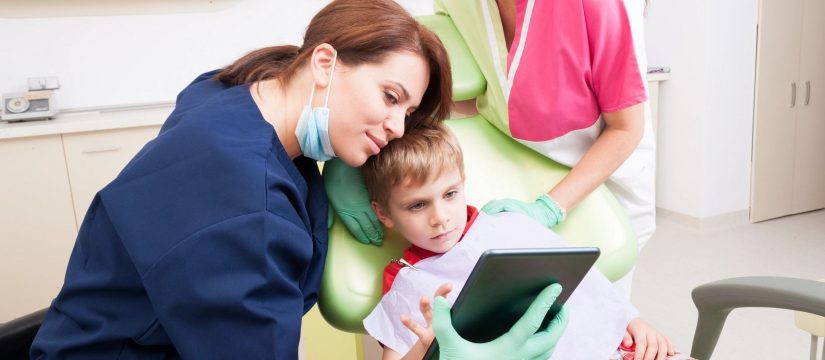
Dental emergencies don’t take a vacation, and teeth aren’t the only thing in the mouth to worry about. You can get cuts and scrapes in your mouth just like other parts of your body. Dental emergencies of the soft tissues of the mouth (cheeks, lips, tongue and gums) can bleed a lot and cause a lot of anxiety! We have all the first-aid information you need for the injuries in your mouth.
Soft-Tissue Injuries
Injuries in the mouth can occur easily. Although they can be painful, the good news is these wounds usually look worse than they are. Blood mixes with saliva in the mouth to make it appear to be bleeding more than it is. Active kids are especially prone. One statistic cites 1/3 of five-year-olds suffering an injury to their baby teeth, and 1/4 of twelve-year-olds suffering injury to their permanent teeth. Sometimes it is as simple as a slip of the toothbrush or floss, the sharp end of a chip, tripping, or or accidentally biting down on a lip. Normal soft tissue injuries include cuts or punctures. Regardless of the cause, the first aid is similar for all soft tissues in the mouth.
- First, rinse your mouth with salt-water (1/2 teaspoon salt in 8 ounces water) or antiseptic mouthwash to clean the wound to from any debris. It is important not to let foreign items become lodged below the gum line because they can develop into painful and serious abscesses. A salt-water rinse also help keep the area clean if you burned the your mouth on hot food until it has healed. Be sure to call the dentist if symptoms persist longer than ten days.
- Place pressure on persistent bleeding with a piece of gauze or tea bag for 15-20 minutes. In addition, place a cold compress on the outer cheek for 5-10 minutes to help reduce pain and swelling. In children, a popsicle can provide the cold and comfort in this situation. If the bleeding continues, be sure to see an emergency dentist.
- You should consult a dentist is the wound is longer than 1/2 inch in length. Sutures may be needed. Call your dentist if any teeth are loose, moved, or broken. Be especially careful of the sharp edges of broken teeth!
- If you have bleeding, don’t take Advil, ibuprofen, Aleve, or Excedrin. These medications will thin the blood. Tylenol is your best pain reliever in this case.
- It is important to make sure tetanus vaccinations are up to date in puncture wounds.
- If participating in sports, a simple mouth guard prevents most soft tissue injuries that can happen while playing.
These injuries don’t often happen at convenient times, but we are always ready to help you at Emergency Dental! Our trained dentists can diagnose and repair damage to soft tissues. Give us a call today!
Follow us on Facebook to keep up new posts! Check out our website to see the services we offer, payment plan information, our full list of blog articles, how to contact us, meet our staff, and read patient testimonials!
